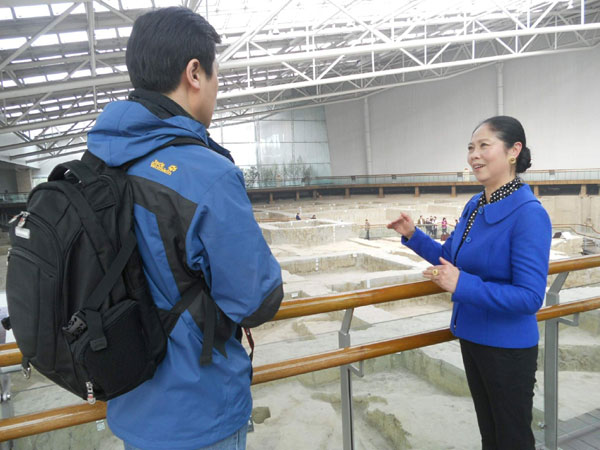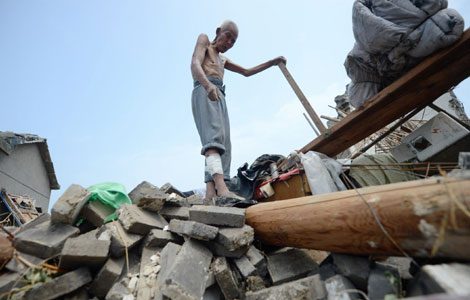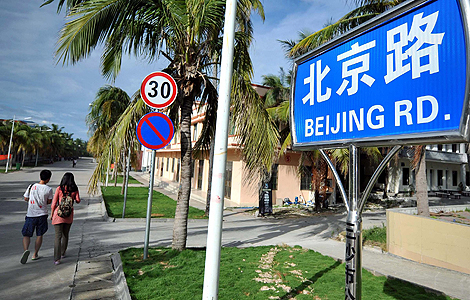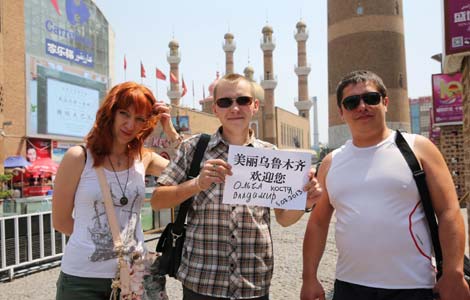

A one-time actress has found her calling as a museum guide in Chengdu. Huang Zhiling finds out more about her story.
To many, Hu Xiaorong is like a star. Taking a stroll in the street, she would be recognized by passers-by. Taking a taxi, she might meet a driver volunteering to give her a free ride. If she had a cold and a sore throat, she may find somebody had left medication for her at the reception counter near her office.
 |
|
Hu Xiaorong shows a visitor from Beijing around the Jinsha Site Museum in Chengdu, Sichuan province, where relics from the Jinsha Ruins were discovered in 2001. The ruins are among the top 10 archeological discoveries of China. Huang Zhiling / China Daily |
"An 80-year-old pensioner wrote a poem showing his admiration for me and did not sign his name. He just left it near my office," says the 59-year-old guide at the Jinsha Site Museum in Chengdu, Sichuan province.
"They appreciate my work in Jinsha," she says with a smile.
She often wears a ring, necklace and a pair of earrings with the sunbird motif, the symbol of the Jinsha Site Museum. Hu has worked here as a guide for 11 years, ever since the Jinsha Ruins were excavated in 2001 and the Jinsha Site Museum was set up.
"Unlike all the other guides who recite what they have memorized, Hu speaks of the relics of Jinsha with passion.
"She likes the relics so much and would get emotional and shed tears," says Diao Huade, a 62-year-old retired primary school teacher who lives near the park-like museum.
According to Zhu Zhangyi, the deputy curator, Hu has guided visitors through the museum for more than 5,000 times.
The Jinsha Ruins have yielded many important cultural relics, such as the 3,000-year-old gold foil in the shape of the sunbird that the State Administration of Cultural Heritage adopted as its symbol of cultural heritage in 2005. The excavation covers an area of 4 square kilometers, including sacrificial sites, houses of the nobility and commoners, and a graveyard.
Like the discovery of Sanxingdui in 1929, these ruins demonstrate the diverse origins of Chinese civilization. The Jinsha Ruins were included in China's top 10 list of archaeological finds.







